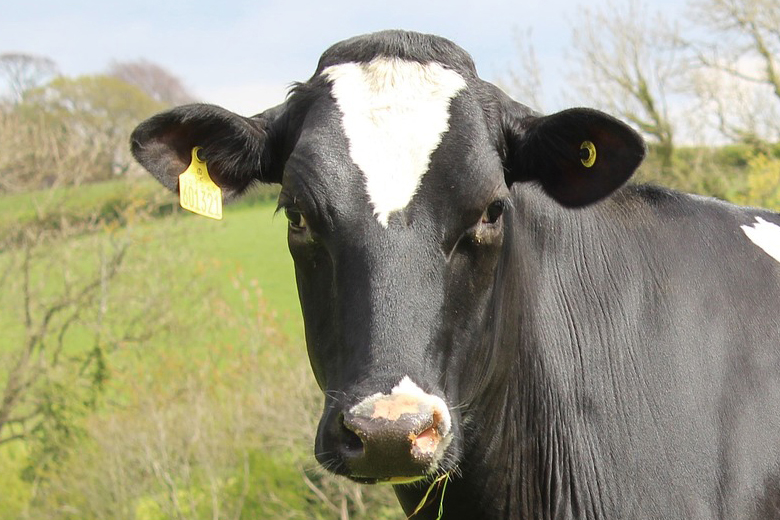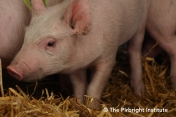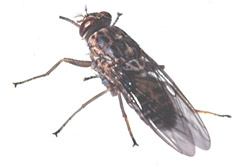News - Infection, Inflammation and Immunotherapy
 New study sheds light on medicines storage practices on UK dairy farms12 November 2018Researchers at the University of Bristol, supported by the British Veterinary Association, the British Cattle Veterinary Association and the Responsible Use of Medicines in Agriculture (RUMA) Alliance, are calling for veterinary surgeons in the UK to work together with their farmer clients to remove expired and inappropriate veterinary medicines from farms and dispose of them appropriately.
New study sheds light on medicines storage practices on UK dairy farms12 November 2018Researchers at the University of Bristol, supported by the British Veterinary Association, the British Cattle Veterinary Association and the Responsible Use of Medicines in Agriculture (RUMA) Alliance, are calling for veterinary surgeons in the UK to work together with their farmer clients to remove expired and inappropriate veterinary medicines from farms and dispose of them appropriately.
 Pig immunology comes of age: killer T cell responses to influenza17 May 2018Researchers from The Pirbright Institute, University of Bristol, Cardiff University and University of Oxford have generated tools that allow scientists to understand a vital area of the pig immune system which was previously inaccessible.
Pig immunology comes of age: killer T cell responses to influenza17 May 2018Researchers from The Pirbright Institute, University of Bristol, Cardiff University and University of Oxford have generated tools that allow scientists to understand a vital area of the pig immune system which was previously inaccessible.
 New study evaluates different strategies for chlamydia screening6 January 2011Increasing the efficiency of partner notification is more cost effective in preventing the spread of chlamydia than increasing the coverage of primary screening in men, according to new research from the University of Bristol, published in the BMJ.
New study evaluates different strategies for chlamydia screening6 January 2011Increasing the efficiency of partner notification is more cost effective in preventing the spread of chlamydia than increasing the coverage of primary screening in men, according to new research from the University of Bristol, published in the BMJ.
 How Nagana is carried by tsetse flies17 May 2018Researchers at the University of Bristol have revealed new details on how the animal disease Nagana is spread by tsetse flies in Africa.
How Nagana is carried by tsetse flies17 May 2018Researchers at the University of Bristol have revealed new details on how the animal disease Nagana is spread by tsetse flies in Africa.
 How dangerous liaisons between human and animal parasites generate new strains of disease13 May 2015New strains of the human pathogen responsible for African sleeping sickness can arise by swapping genes between human and animal variants of the parasite, new research from the University of Bristol has found.
How dangerous liaisons between human and animal parasites generate new strains of disease13 May 2015New strains of the human pathogen responsible for African sleeping sickness can arise by swapping genes between human and animal variants of the parasite, new research from the University of Bristol has found.
 Could a probiotic be used to treat inflammatory bowel disease?19 October 2011A new study by academics at the University of Bristol has found a scientific ‘design’ for a probiotic that could be used to treat inflammatory bowel disease (IBD), such as Crohn’s disease.
Could a probiotic be used to treat inflammatory bowel disease?19 October 2011A new study by academics at the University of Bristol has found a scientific ‘design’ for a probiotic that could be used to treat inflammatory bowel disease (IBD), such as Crohn’s disease.
 Growing up on a farm directly affects regulation of the immune system8 February 2012A study by a team at the University's School of Veterinary Sciences has shown that growing up on a farm directly affects the regulation of the immune system and causes a reduction in the immunological responses to food proteins.
Growing up on a farm directly affects regulation of the immune system8 February 2012A study by a team at the University's School of Veterinary Sciences has shown that growing up on a farm directly affects the regulation of the immune system and causes a reduction in the immunological responses to food proteins.
 New study hopes to reduce bone fracture rates in laying hens12 March 2013A new study led by the University's School of Veterinary Sciences hopes to reduce the fracture rates in laying hens thanks to a grant of £532,000 funded by the Biotechnology and Biological Sciences Research Council (BBSRC) and supported by industrial partner, Noble Foods.
New study hopes to reduce bone fracture rates in laying hens12 March 2013A new study led by the University's School of Veterinary Sciences hopes to reduce the fracture rates in laying hens thanks to a grant of £532,000 funded by the Biotechnology and Biological Sciences Research Council (BBSRC) and supported by industrial partner, Noble Foods.